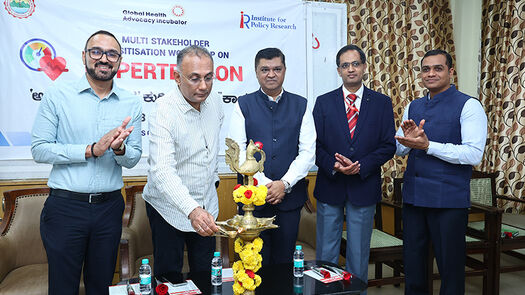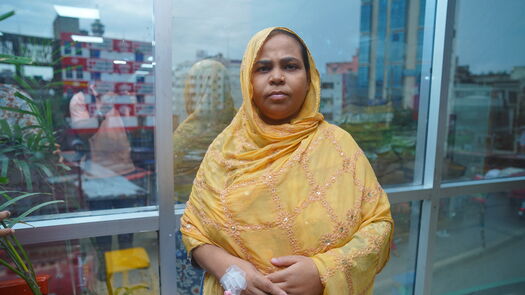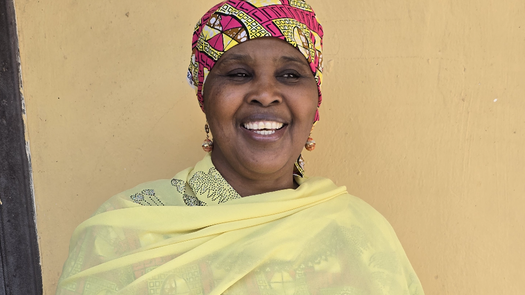November 19, 2025

Meet Tayo
Tayo Ajayi is the newest addition to the Global Health Advocacy Incubator’s (GHAI) Cardiovascular Health Program. With a rich background in advocacy and a passion for driving policy change, Tayo brings fresh perspective to the fight against diet-related disease. She shares her vision for her role as the Associate Director for Africa, how she plans to support partners across the continent and her valuable insights in the push for healthier food systems in Africa.
Can you tell us about your new role at GHAI and what you're most looking forward to in this next chapter of your work?
I am excited to step into my new role. In this position, I’ll be working closely with civil society partners in Ethiopia, Kenya, Nigeria, Tanzania and Uganda to drive policy and regulatory changes aimed at reducing the burden of cardiovascular disease caused by unhealthy food consumption.
Our mission is clear: to support the development and implementation of national food policies that improve diet quality. This includes eliminating industrially produced trans fats and reducing sodium intake in processed foods through maximum limits for sodium content, front-of-package warning labeling and marketing restrictions.
What drew you to this role and how has your personal and professional experience given you unique insight into food systems in Africa?
Over the last few decades, the African region has seen an increase in the consumption of ultra-processed products—those high in saturated fats, sugar and salt. This shift in dietary patterns has significantly contributed to the rising burden of noncommunicable diseases (NCDs). As a passionate advocate, this role provides an opportunity for me to use my educational background in law and public health to advance lifesaving policies that would reduce the burden of NCDs in Africa.
My advocacy journey began in Nigeria, where I worked on a program to reduce under-5 mortality from pneumonia and diarrhea. Collaborating with civil society organizations, coalitions, policy makers and the media, we achieved meaningful policy wins. I continued my advocacy journey at GHAI, leading the Prevent Epidemics Budget Advocacy Program to push for dedicated funding for epidemic preparedness and response. My new role on the Cardiovascular Health Program means a shift from infectious diseases to non-infectious diseases, but the core principles of advocacy remain the same: evidence to drive advocacy and communications efforts, legal and direct policy advocacy to influence policymakers, media advocacy to shift the narrative and target policymakers and coalition-building to advocate for change.
What have been some of the most valuable insights you've gained so far in your new role?
To better understand the landscape, I recently visited our partners in Nigeria, Kenya and Uganda. These visits were invaluable. Being at the local level allowed me to build relationships, gain strategic insights and meet with government stakeholders who are championing this work. It reinforced the importance of contextual understanding and local leadership in driving sustainable change.
I am very thrilled about this new role and the journey ahead; together with my team members and country partners, I’m confident we can work with relevant stakeholders to develop strong, evidence-based policies that will reduce the burden of NCDs and improve lives across Africa.



